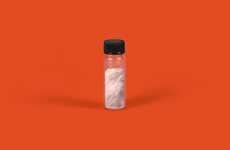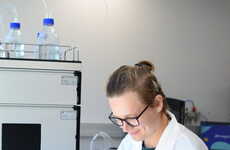
New Technology Replicates the Liver and Could Stop Animal Testing
Michael Hemsworth — February 3, 2016 — Tech
References: fraunhofer.de & gizmag
Many consumers would prefer that their favorite brands stop animal testing, so research out of the Fraunhofer Institute for Cell Therapy will come as welcome news.
The new technology aims to replicate the liver environment to help do away with animal testing yet still maintain stringent laboratory testing for new products. Being that the liver is the organ required to remove toxins from the body, the new technology shows promise for offering an alternative to cruel testing technologies.
The incorporation and growth of liver cells requires a bioreactor that places the cells into separate wells. From here, certain ingredients could be introduced to weigh the reaction they could have if presented into the human system.
With brands looking to become more conscientious to win the approval of consumers, this new technology could revolutionize how we think about lab testing.
The new technology aims to replicate the liver environment to help do away with animal testing yet still maintain stringent laboratory testing for new products. Being that the liver is the organ required to remove toxins from the body, the new technology shows promise for offering an alternative to cruel testing technologies.
The incorporation and growth of liver cells requires a bioreactor that places the cells into separate wells. From here, certain ingredients could be introduced to weigh the reaction they could have if presented into the human system.
With brands looking to become more conscientious to win the approval of consumers, this new technology could revolutionize how we think about lab testing.
Trend Themes
1. Animal-free Testing - Developing technologies that replicate human organs could disrupt the animal testing industry.
2. Liver Cell Bioreactors - Bioreactors that can grow and test liver cells offer a promising alternative to traditional animal testing methods.
3. Conscientious Branding - Consumers' increasing demand for cruelty-free products is driving brands to seek innovative lab testing solutions.
Industry Implications
1. Pharmaceutical - The pharmaceutical industry can adopt liver cell bioreactors to streamline drug testing processes, reducing reliance on animal testing.
2. Cosmetics - Animal-free testing technologies offer cosmetics companies the opportunity to develop cruelty-free products and enhance their brand image.
3. Biotechnology - The biotechnology sector can leverage liver cell bioreactors as a disruptive innovation to improve drug discovery and toxicity testing methods.
0.9
Score
Popularity
Activity
Freshness























